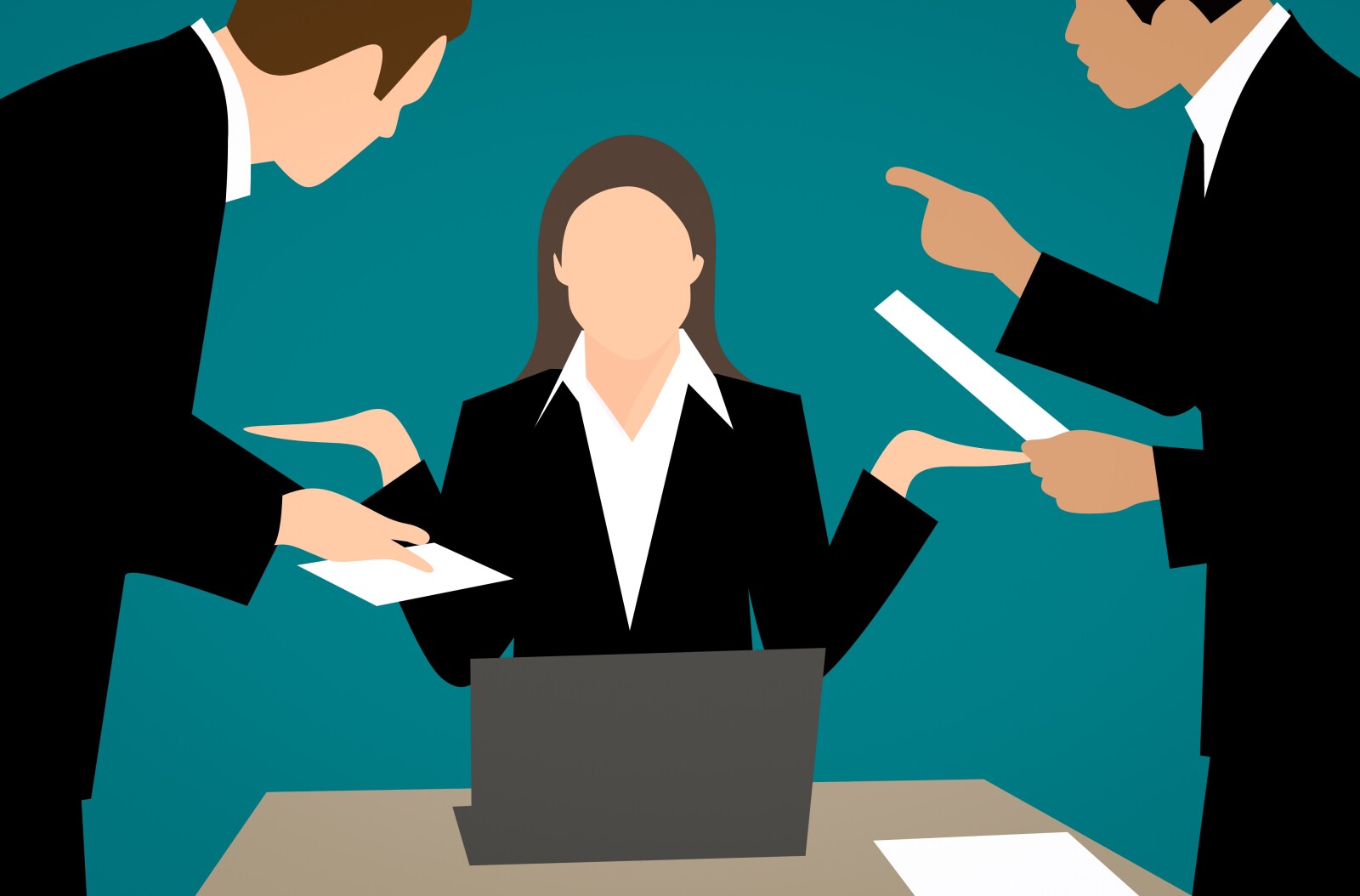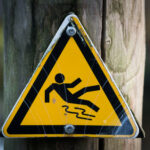10 Mistakes to Avoid When Negotiating a Slip and Fall Settlement
In the realm of personal injury law, slip and fall settlements necessitate careful negotiation. Missteps, such as premature admission of fault or improper claim valuation, can adversely affect the outcome.

This article elucidates ten common errors in negotiating such settlements, providing insightful recommendations to circumnavigate these pitfalls, thereby maximizing potential compensation.
The exploration of this subject serves to enhance understanding of legal procedures and promote effective negotiation strategies.
Key Takeaways
- Think before speaking during negotiations and avoid irrational or angry statements.
- Do not admit fault as it can drastically reduce or eliminate the settlement.
- Be cautious when discussing pre-existing injuries and consult a doctor for documentation.
- Have a good understanding of the claim's worth and gather evidence to support it.
The Pitfall of Speaking Without Thinking
In the context of negotiating a slip and fall settlement, a significant error to avoid is speaking without careful consideration, as insurers scrutinize every statement made during the negotiation process. Speaking without caution can inadvertently lead to self-incrimination, reduction of compensation, or outright denial of claims. The importance of thoughtful communication cannot be overstated.
Every utterance should be deliberate, informed, and purposeful to advance the claimant's position. Missteps in communication may be interpreted as inconsistencies, thereby undermining the credibility of the claim. Succinct responses, devoid of speculation and conjecture, are advised.
Furthermore, an understanding of the relevant legal terminologies and procedures enhances the efficacy of communication, equipping claimants with the necessary tools to navigate the negotiation process.
The Danger of Admitting Fault Prematurely
Premature admission of fault can significantly impact the outcome of a case, often leading to a drastic reduction or complete elimination of a potential settlement. It is crucial to understand the precise legal implications before making any statements regarding liability.
| Impact | Prevention | Legal Representation |
|---|---|---|
| Premature admission could result in lower settlement or dismissal of the case. | Avoid speculation or unnecessary dialogue regarding fault. | Legal counsel can guide interactions to prevent harmful admissions. |
| Insurance companies may use premature admission to shift blame. | Stay informed about contributory and comparative negligence laws. | Lawyers have knowledge of these laws and can navigate negotiations effectively. |
| Admission of fault can negatively affect court proceedings. | Preserve the right to silence until obtaining legal advice. | Legal representation ensures the protection of rights in court. |
The importance of legal representation cannot be overstated when negotiating a settlement.
The Risk of Discussing Pre-Existing Injuries
Discussion of pre-existing injuries during insurance claims can significantly influence the ultimate compensation, as insurers may leverage this information to justify reduced settlement offers. Transparency is essential, but unnecessary detail could disadvantage claimants. Thus, discussing pre-existing injuries requires balance and careful consideration.
It is critical not to deny known pre-existing conditions, as this could discredit the claimant. However, providing excessive information beyond what is legally necessary might serve the insurer's interest.
The importance of medical documentation in this process cannot be overstated. It provides a factual basis for claimant's injuries, distinguishing between injuries resulting from the accident and those pre-existing. Detailed medical records can counter attempts by insurers to undervalue claims based on pre-existing conditions. Therefore, proper medical documentation is fundamental to a successful claim.
The Hazard of Undervaluing Your Claim
Undervaluing a claim can significantly impact the compensation received by a claimant after an accident. The process of calculating damages accurately is critical to obtaining a fair settlement. It necessitates a comprehensive understanding of all the claim components, including past and future medical costs, lost earnings, and pain and suffering. The importance of thorough documentation cannot be overstated, as it serves as credible evidence to support the claim's value.
Accurate calculation of damages involves meticulous analysis of all expenses and losses directly linked to the accident. Comprehensive documentation, such as medical records, receipts, and wage statements, provides tangible proof of these losses.
The inclusion of non-economic damages in the claim requires careful documentation of the claimant's pain, suffering, and diminished quality of life. An objective valuation of the claim, unswayed by emotional factors, can contribute to a more successful negotiation process.
The Peril of Overvaluing Your Claim
Overestimation of a claim's worth can be detrimental to the negotiation process, potentially undermining the credibility of the claimant and leading to a reduced or denied compensation. This overestimating settlement can be viewed as an attempt to exploit the situation, which can have detrimental consequences. Insurance companies have experienced adjusters who are adept at identifying and challenging inflated claims. Hence, it becomes crucial to present the claim with accurate and reasonable figures.
| Overestimation of Claims | Consequences |
|---|---|
| Undermines credibility | Reduced compensation |
| Viewed as exploitation | Denied settlement |
| Challenged by experienced adjusters | Prolonged negotiation process |
| Lack of accurate and reasonable figures | Damaged reputation |
| Misrepresentation of facts | Legal consequences |
Therefore, avoiding the overestimation of a claim is advisable for a smooth negotiation process and fair settlement.
The Trap of Trusting the Adjuster Blindly
Caution should be exercised when dealing with insurance adjusters, as their primary objective is to minimize the payout for the insurance company they represent. Falling into the trap of trusting the adjuster blindly can lead to a lower settlement. The adjuster's negotiating tactics often aim to exploit the claimant's lack of knowledge or vulnerability.
- Adjusters might employ flattery or feign empathy to gain the claimant's trust.
- They may downplay the severity of injuries or property damage.
- Adjusters might rush the claimant into a quick settlement, discouraging further investigation or legal consultation.
- A common tactic is to question the claim's legitimacy or the claimant's integrity, causing self-doubt and hasty concessions.
Awareness of these tactics can assist the claimant in maintaining a strong, fact-based negotiation stance, resulting in a fairer settlement.
The Threat of Exaggerating Damages
After discussing the potential pitfalls of placing undue trust in insurance adjusters, focus now shifts to the perils of overstating damages in slip and fall claims. Exaggerated damages, often borne out of a misguided attempt to secure higher compensation, can be significantly detrimental to a claim's progress.
Inflated claims not only lead to skepticism on the part of the insurer but also jeopardize the claimant's credibility in court. This credibility is paramount in ensuring a fair hearing and settlement.
It is imperative for claimants to provide accurate, verifiable records of their injuries, treatment, and associated costs. Persuasion here lies in the authenticity and consistency of the presented facts rather than in the magnitude of the stated damages.
Claims should be rooted in truth, not exaggeration, to maintain credibility and increase the likelihood of a favorable resolution.
The Snare of Overlooking Evidence of a Hazard
Shifting focus to the importance of gathering tangible proof of a hazard, it is crucial to understand that insurance companies may deny claims in the absence of concrete evidence demonstrating the presence of a dangerous condition. In the realm of slip and fall settlements, an oversight of this nature can undermine the entire negotiation process.
- The collection of photographic or video evidence immediately following the incident is paramount.
- Equally important is the gathering of witness statements, which lend credibility and corroboration to the claim.
- Incident reports play a significant role in proving liability, often providing a contemporaneous record of the hazardous condition.
- Lastly, ensuring that any physical evidence related to the hazard is preserved is crucial, as it can substantiate the existence of the dangerous condition.
The Jeopardy of Ignoring Evidence of Injuries
In the context of insurance disputes, the presence of robust documentation to substantiate claims of injury is of paramount importance. Overlooking medical records or underestimating damages can lead to unfavorable settlement outcomes. The role of medical records in establishing the extent of injuries is indisputable. They provide a detailed account of the injuries sustained, their severity, and the corresponding treatment administered. Underestimating damages, on the other hand, can result in a less than deserving settlement. Accurate estimation requires a comprehensive understanding of both tangible and intangible damages incurred.
| Aspect of Claim | Importance |
|---|---|
| Medical Records | Provides tangible proof of injuries, treatment, and recovery |
| Damage Estimation | Determines the monetary value of the claim |
Thus, a meticulous approach towards maintaining medical records and estimating damages is essential for a favorable settlement in slip and fall cases.
The Consequence of Failing to Consult an Attorney
Failure to engage legal counsel during dispute resolution with insurance companies can lead to detrimental outcomes, as this process often necessitates specialized expertise and understanding of complex laws and procedures.
- Legal counsel can assist in accurately calculating claim value, hence avoiding undervaluation or overvaluation, which can impact credibility and settlement offers.
- Correct gathering of evidence is crucial in personal injury cases. A slip and fall attorney can guide the victim on how to gather and present evidence effectively.
- Missteps in handling communications with insurance companies can lead to reduced settlement offers. A lawyer understands the tactics employed by insurance companies and can counter them effectively.
- Lawyers are knowledgeable about legal procedures and can ensure that all paperwork is filed correctly, hence avoiding any legal pitfalls that could jeopardize the claim.
Frequently Asked Questions
What Are Some Strategies to Stay Calm and Composed During Negotiations With Insurance Adjusters?
Effective strategies for maintaining composure during negotiations with insurance adjusters encompass various emotional management techniques. These strategies involve managing stress through deep-breathing exercises, maintaining a positive outlook, and practicing patience.
Additionally, understanding negotiation techniques, such as active listening and clearly articulating points, can provide an advantage. It's also crucial to remain informed about legal terminology and procedures to respond confidently and accurately during discussions.
Such strategies aid in conducting negotiations in a professional, composed manner.
How Can I Understand and Apply Contributory and Comparative Negligence Laws in My Case?
Understanding and applying contributory and comparative negligence laws in slip and fall cases involves analyzing the liability and degree of fault of all parties involved. These laws affect the settlement amount and vary by jurisdiction.
They require detailed negligence determination, often necessitating legal representation for accurate interpretation and application. Therefore, consulting with an attorney knowledgeable in these laws is crucial to ensure fair settlement negotiation outcomes.
What Should I Do if My Pre-Existing Injuries Are Worsened by the Slip and Fall Incident?
In the event of pre-existing injuries exacerbated by a slip and fall incident, it is crucial to obtain comprehensive medical documentation.
This documentation should detail not only the current injuries but also the impact on previous conditions.
Such evidence, critical in settlement negotiations, provides a clear understanding of the injury's severity and its effect on the individual's overall health.
This objective evidence can significantly influence the determination of appropriate compensation.
How Can I Ensure That My Claim Is Neither Undervalued nor Overvalued?
To ensure accurate valuation of a slip and fall claim, meticulous documentation is crucial. This includes medical records, lost wage reports, and future expense projections.
Assessing settlement expectations requires understanding the extent of injuries, the impact on quality of life, and comparative negligence laws.
It's advisable to consult legal expertise for a comprehensive claim evaluation. Overestimation or underestimation can lead to claim denial or reduced settlement, hence a balanced approach is necessary.
What Steps Can I Take to Gather Comprehensive Evidence of the Hazard and My Injuries?
To gather comprehensive evidence of the hazard and injuries after a slip and fall incident, meticulous preservation of evidence is crucial. This includes:
- Photographic or video documentation of the hazard
- Prompt medical treatment
- Thorough record-keeping of medical visits and expenses
Witness statements can corroborate the presence of the hazard and the occurrence of the accident. Consulting with legal professionals can ensure the appropriateness and sufficiency of the gathered evidence.

This post has been generated by AI and was not reviewed by editors. This is Not legal advice. Please consult with an attorney.




